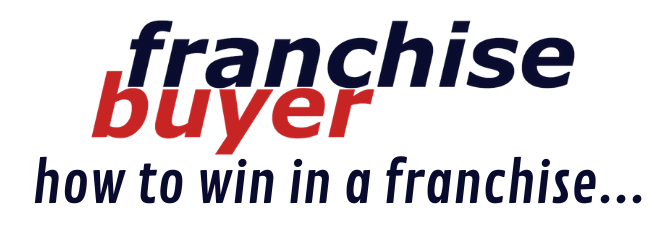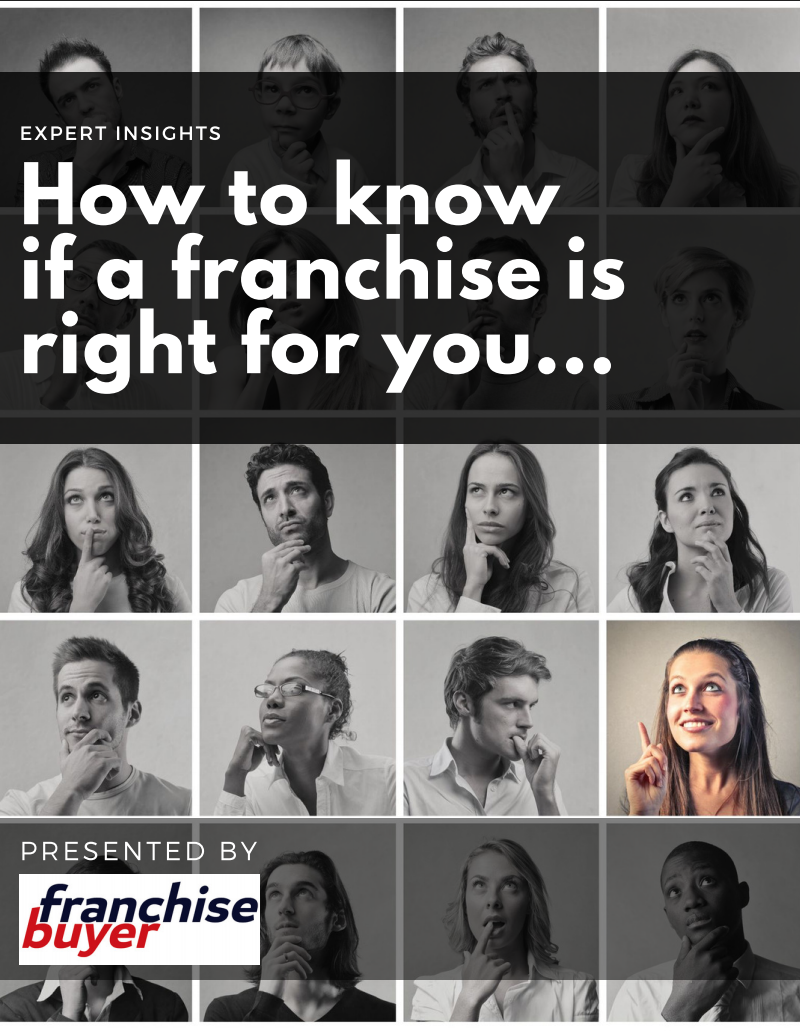September 12, 2018
How we explain what's happening in franchising to prospects - The Curious Case of Franchising in 2018
There are a lot of questions around franchising at the moment, and no wonder, let’s face it, this hasn’t been a stellar 12 – 18 months for the franchise sector.
Although primarily focused on issues related to a very small number of individual franchise companies, the whole sector has been thrown into the spotlight for negative reasons including, systemic wage underpayment scandals, company failures, store profitability and sustainability issues and franchisor conduct claims.
As a result, consumer confidence in franchising as a business investment product, is taking a battering.

“But, it’s not a franchising ‘as a business model’ problem. It’s problems within particular companies that also happened to be franchise companies.”
There are around 1,100 franchise companies in Australia alone, and the issues of just 4-5 of them are supposed to be indicative of the 1,096 rest who are also franchised? Nope.
It’s news because they are so big, and the commentary around it gathers its own momentum implying that these big franchise businesses, and very specific issues within them, that they represent the entire franchise sector of business.
Ignoring it and pretending nobody is talking about it is counter-productive. The media swirl has appeared more of a focused attack on the franchise business model itself, with little consideration of how it actually relates to 1,100 other franchise companies when they mention the word ‘franchising’.
It’s mostly a sensationalist and superficial argument – but we know that is the way the world works now.
The issues being aired are complex and for the most part will stem from all or a combination of;
- Individual company strategy and execution issue,
- Individual franchise owner actions / in-actions,
- Shopping centre leasing issue,
- Competition,
- Consumer spending habits changing.
Our aim
Our aim in this article, is to contextualise the commentary, which has become sensationalist and superficial. It is not an attempt to put any of our own commentary around an individual business’ specific actions. But, it is also to identify the trends being shaped, and the opportunities that are evident out of the disruption, and how to take advantage of them.
Why is this all such big news?
The commentary from some trying to paint the entire franchise business model as the problem, is mainly borne out of the fact the ‘scandals’ are at some of the biggest franchise companies in the country. Big fish, get big attention. It’s especially disappointing as it is causing significant collateral damage to so many other companies and people with not the slightest thing to do with any of it, as they go about their days in their businesses.
The commentary particularly causes damage to people who were, in the normal course of events, putting their business up for sale. Often ill-informed as the commentary is, and given without fair context, it can hit the sellers of a franchise business pretty hard at this time. It’s fear mongering by generalisation.
The impact will be that a reduced number of people who really wanted to, will not enter into entrepreneurship using the proven higher success probability franchise model as their investment vehicle to do so. And people who have worked hard and are ready to exit by selling their location, will potentially find it harder than it should be. That is unfortunate.
But, as in any disruption, there are winners and losers. As a savvy buyer, you stand the best chance of securing a business closest to your terms in this environment.
Rather than commentary focusing solely on the viability of franchising as a business model, there is another stakeholder also worthy of attention. They should be just as interested in looking at the conduct of major shopping centre landlord activity, and their impact on franchise and stand-alone operator profitability nationally.
So, how does all this affect franchising, for you?
Great question, and the answer is the same if you are a person looking to buy a franchise or are an executive working in and looking to grow a franchise system. This disruption brings opportunity.
This disruption to franchising really comes from the fact that consumption of just about anything in our economy is being disrupted. How we eat, where we eat, how we shop, do we go to the movies anymore, do we use the landline, do we buy online and so on. There is just so much going on that has fundamentally changed what and how we consume. This is the case for any business right now.
Don’t be shaken or second guessed by people who are not informed. Be cautious – absolutely, but I’d be saying that at any time. Double down on your research and seeking of advice in buying a business. Be very clear on exactly what you are getting yourself into and make no assumptions without foundation. That’s what the disruption should be doing to your assessment of business opportunities – become a savvy buyer and benefit from the market conditions.
Further, become a savvy franchisor and benefit from the very same conditions in the market. You also have a golden opportunity as a franchise company to stand out as never before – if you have strong system attributes that can be positioned for this ‘new world’.

Buying? You’ve lowered your risk
The franchising business model gives you a far greater chance of success.
When an independent business fails, mostly we’d never hear of it. Yet plenty do, given that 60% of small businesses fail within their first 3 years, according to the Australian Bureau of Statistics (ABS). Franchising on the other hand, has a significantly lower failure rate than that – much less.
No matter whether you are a franchise company or not, right now, every business in the country is under some form of pressure to adapt to the changing consumption patterns landscape. Some will be affected more than others depending on all manner of circumstances.
Hearing any commentary around franchising recently that it is finished, all bad, a thing of the past, and so on – is just plain wrong.
So, What Are You Buying?
If franchising was invented in 2018 it would be called a Start-Up Hack. The tech industry constantly refers to ‘hacks’, before that we just referred to those things as short cuts!
It’s the get into business fast hack without the mistakes and errors you’d need to make if on your own. You’re buying a template to own and operate a business. Franchising is just a way to do business, and when done well, it’s actually a really good way of doing business.
You’re buying an idea, a product or service offer that you don’t need to create yourself. You also don’t need to create from scratch all the things you need on how to deliver that product or service – all those nitty gritty details that bring so many small business owners un-stuck.
You also get trained and coached / supported in how to run the business, and at face value, that’s a pretty good value proposition.
In return, you need to; pay up-front entry and on-going costs for all that knowledge, and intellectual property that you are instantly accessing and downloading into your brain. Also, the physical asset costs, product, training, support and varied services on-going.
Of course, these broad features and benefits differ greatly amongst the hundreds of franchise and license systems.
“The crucial question is quite a simple one; is the total amount invested at start, on-going, and to exit, compared to what you forecast to earn from it, does it make a good value proposition? ”
I reckon people buying into franchises often simply assume too much. They make too many assumptions about success and their own probable success.
It seems people buying franchises do it with both a success expectation gap, AND a false sense of security.
This is not to scare or warn people off a franchise, but people just seem to assume that they always work and are always profitable. I found this as an executive in franchising over many years. It’s classic buyer psychology around things that we really want. The problem is, buying a business is not the time to get attached to something emotionally and let that be the key decision driver. That is the time to really dot the I’s and cross the T’s on every single thing.
However, the Franchise Council of Australia often openly laments, as the franchise research studies done by Griffith University show, that a significant number of buyers do not conduct ‘due diligence’ in any meaningful way.
This is where franchising also has been part of its own problem that’s causing this in my view, albeit indirectly. Franchising and franchisors in Australia often correctly make claims around;
- It is the ‘most-regulated’ franchising sector in the world, I believe this common phrase has created a false-sense of security akin to some buyers thinking, “the government has protected us” or “look at the amount of disclosure they need to provide, it has to be all ok”,
- Franchising has inadvertently set itself up with its small business success rate claims compared to stand-alone small businesses, by almost over-promising in the eyes of buyers. It’s an expectation gap,
- Franchises are so attractive to many with the almost industry standard descriptor phrase of “No Experience Required. We train you in everything.”
These are like our ‘industry elevator pitch’. They are used as part of the pitch to the wider public to raise the profile, attractiveness and esteem of the franchise business model. But if you do that, then be prepared to be pointed at when problems occur – no matter how big, small, or contained. This is not a suggestion to stop saying this stuff, but it does explain some of the attention being received.
I’ve found people look at me like I just swore at them when I reveal this view point!
But, if we think about the psychology of it, with franchisors in their sales / recruitment, are ‘sort of’ talking your chances of success down, so they don’t end up in court if you fail. Yet, all the buyer hears from the franchising sector messaging being pumped at them is – ‘franchising has you covered, everything is going to be ok’.
These three organic, and at times, subliminally working sales pitches, are forever raising the expectations of success to levels that could be dangerously high for some individuals going into a business.
It can also create an environment where that natural advantage of being ‘a franchise’ can be harnessed and used by some who probably shouldn’t. This applies to both franchisees and franchisors.
That’s why I, and many others I believe, would like to see a mechanism of suspension from a body like the Franchise Council of Australia under certain circumstances to isolate companies and individuals who are not operating in the spirit of franchising, not just the law. That would be a seriously positive step forward.
In fact, my view is there are three areas to be addressed where franchising would be benefit to further strengthen the sector and confidence;
- A Franchise Council of Australia (FCA) membership suspension mechanism for companies or individuals found not to be conducting themselves in the spirit of franchising and or the law,
- Transparency / oversight on the conduct and activities of major shopping centre landlords regarding their impact on the profitability and sustainability of businesses under lease,
- Work on moving closer to a form of commercially acceptable parity between franchisor and franchisee in franchise agreements that are for the most part, heavily in favour of franchisors.

Practically applying all this in 2018
Savvy buyers should see opportunity. If you don’t feel savvy, then get savvy by immersing yourself in the market you want to go into. Sweet deals will be getting done to set franchisee and franchisor equally up with recurring revenue streams to carry them into the next decade, as 2018 feels like a line-in-the-sand moment. Existing franchisees will also be wanting to exit this environment and be motivated to do so.
As it’s not ‘franchising’ that’s the issue, what you need to concern yourself with is more about ‘which franchise do I choose?’ if buying a business.
Franchise brands are built to grow, it’s in their DNA. As a franchise owner, you should want your whole brand to grow in the market, it adds to your pooled marketing fund, gives you more brand presence and impact, and gives broad economies of scale which benefits everyone involved.
I am still most definitely a firm believer in the value of franchising as a business model. When well-developed, implemented, and operated, franchisee investors are tapping into, and leveraging it in the most efficient way. The franchise system owner is also benefiting through leveraging the value of their Intellectual Property.

The 3-Speed Franchise Market in 2018
In our view, a three-speed franchise market already looks to be appearing when it comes to expansion.
First Speed - Some brands will shelve growth plans for a period and instead focus on re-investing back into their existing network. Their focus is to grow profitability and revenue of existing franchises as an alternate way to grow their income and secure their brand for the future. They will still add franchises when the opportunity presents in natural course.
Second Speed - Some brands will acknowledge the challenges, but continue their focused expansion plans. They are confident that their business model is solid, attractive, and stands above any broader market sentiment on franchising as a business model. They are able to articulate AND present their value proposition to the market very clearly.
Third Speed - Other brands, no matter what they do, or how much marketing money they throw at expansion of their network with new franchises, just won’t be able to sell enough units. Their offer when more closely scrutinised in this environment by savvy buyers, just does not stack up as good value.
Of course, you’d want to be part of #1 and #2!

Ways to identify a franchise that is going places.
There are any number of things that you personally might want to consider and look at depending on the business. Of course, it goes without saying that the financials are the financials and will speak for themselves with the aid of your professional advisers, but broadly, good future-proofing signs would be these;
- A Franchisor not afraid to disrupt their model with a clear view to sustainability and profitability,
- A Franchisor who is actually adding-value and can articulate and show this value,
- A Franchisor with a plan, and a method to explain their approach,
- A Franchisor who has a clear understanding of where they fit in their market for the consumer AND against their competing brands,
- A Franchisor who demonstrates strong, fair and decisive leadership.
Delivering these messages to potential and existing franchisees takes courage. People will disagree with firm views and they also dislike change and feeling uncomfortable. Strong, fair and decisive franchise leadership is something you should crave.
2018 and beyond
The ‘standard’ franchise model is already changing and will continue to do so faster. Hybrid versions of the model will evolve (and already have) around even stronger delivery and demonstration of value-add from franchisor to franchisee. Things like fee structures, support, resources and so on will be more franchisee-centric, and many based on a needs basis.
We see a whole new wave of franchise concepts that are about to expand in the market in a way that they have been unable before. As bigger brands may be perceived as being too big and too impersonal, the smaller brands that have only been able to grow slow and steady, have by default, grown very carefully, one successful location at a time.
Brands who couldn’t stand out, now have an opportunity to stand out due to their inherent ‘goodness’, steady and methodical growth. They won’t be drowned out as much by brands with the biggest marketing spend as they now have a real story and an angle to tell it.
Content marketing will be king in telling that story. Articulating that true value proposition clearly, and telling it in a shareable, likeable story manner, is going to be the difference between growing or not growing.
Being able to story tell that value proposition at both consumer level AND at a franchise expansion level in one way or another, is the key to ultimate success in 2018 and beyond.
There-in lies the challenge and crucial step of choosing wisely…















